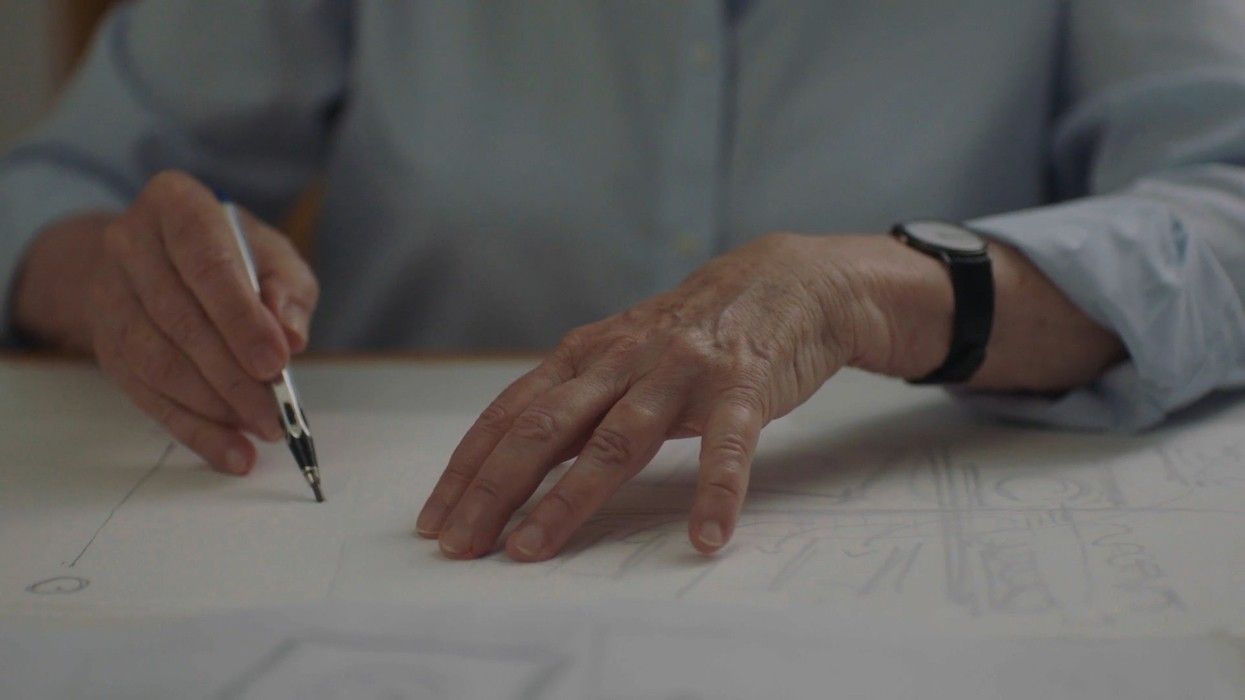The Architecture & Design Film Festival (ADFF), which I attend every year, was in Toronto this past weekend, showcasing films that explore how architecture and design shape our lives and cities.
Watching 'Ada – My Mother the Architect' at the ADFF affected me on multiple levels — as an architect, a mother, and a born-and-raised Israeli. This film offers an intimate look into the life and sacrifices of Ada Karmi-Melamede, a pioneering architect whose impact on Israeli architecture is profound, and not just on Israeli architecture. Ada was one of the few female architects in her generation, influencing the next generations of female architect – like myself.
Directed by her daughter, Yael Melamede, the documentary brings forward the untold cost of her success. Ada returned to Israel from the United States after an esteemed 14-year teaching career at Columbia University that ended when she did not receive tenure. This move marked a pivotal change in her life, as she won the competition to design the Supreme Court in Jerusalem. This prestigious contract required her to remain in Israel for seven years, leaving behind a life and family in the US, a sacrifice that became permanent.
Ada's decision to prioritize her career over personal life belongs to a specific era of professional expectations for women, and made me reflect on the generational differences in our field. In her time, immense personal sacrifices were nearly a given for female architects, especially those who aimed to break into public or high-profile projects, a sacrifice I don’t know anyone today to agree to. For Ada, that meant leaving her three children in the US with their father and communicating by hand-written letters.
For Ada, the Supreme Court project was a defining moment, anchoring her as one of Israel's most distinguished architects. The cost, however, was great; she did not return to the US and instead focused on her projects within Israel, developing a legacy in public architecture that still feels monumental today. Her contributions include not only the Supreme Court but also significant projects like the Open University and Ben Gurion Airport, which built Israel’s evolving architectural identity and ideals.
As a mother who runs her own architecture firm today, I feel fortunate to work in a landscape that allows more flexibility, though the pressures remain significant. I often wonder how much our children understand or remember of our commitment, especially as they see us constantly on our phones, and this is true to so many of us parents today. While I work well beyond a five-day, 7.5-hour week, I still have the choice to shape my schedule more freely than Ada did.
The film also resonates with me as an Israeli architect. I grew up in an environment admiring Ada’s buildings and knew her work long before I knew her name. Coming from a renowned architectural family, with her father and brother also celebrated in the field, Ada faced different types of pressures. Her brother, Ram Karmi, received the Israel Prize for Architecture even before she did. Ada’s more reserved presence and her preference for public over residential architecture set her apart from her contemporaries. Her recognition came later, as she eventually received the Israel Prize in 2007, and that was a moment of acknowledgment for her lifetime of dedication, which she said she wished she could share with her mother.
This movie showed the distinct values of Ada’s generation of architects — a generation that often viewed architecture as a form of public service, deeply intertwined with national identity and Zionism, that comes before family. While they operated in an era where major public buildings were often awarded to a small, elite group of architects, today’s landscape is far more competitive, with fewer opportunities for young architects to gain high-profile projects.
Ada Karmi-Melamede’s story is a powerful reminder of the compromises women once made and the price they paid for recognition in architecture. Her legacy, and those of others like her, laid the groundwork for a profession that is hopefully more accommodating today. Yet, the film also leaves us with questions about how we balance our dedication to architecture with the evolving expectations of family and self — a balance that, perhaps, will always be a work in progress.





















